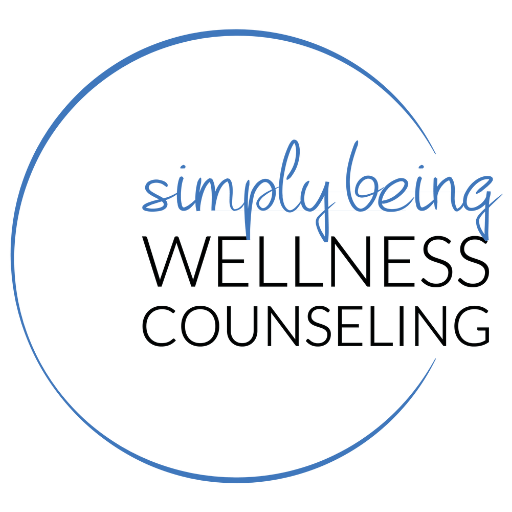
Teen Therapy
Empowering Young People To Live Well
Therapy can help children and teens identify their feelings and approach life’s transitions in an emotionally healthy way. Schedule a consultation with us today, and let our passionate team of therapists empower your child’s transformational journey.
Providing Teenagers With The Tools They Need To Live Emotionally Balanced Lives
Teens, like adults, can benefit greatly from counseling. Teen therapy assists teenagers in dealing with unique emotions. It can also assist teens in navigating problems, managing life stressors, and adjusting to major changes. A therapist can help teenagers better understand themselves, express themselves, make better decisions, and live emotionally balanced lives.
Adolescence is a crucial developmental transition period between childhood and maturity. Teenage years are marked by curiosity, novelty seeking, goal setting, risk-taking, social interaction, and the continuous development of critical reasoning skills. Teens are subject to intense emotions, undeveloped impulse control, and drug and alcohol experimentation since their brains are still developing and emotionally oriented. This makes adolescence a unique time of difficulty and opportunity for positive growth and development.
At Simply Being Wellness Counseling, our goal is to help teenagers navigate life’s challenges and transitions from an emotionally intelligent perspective. Schedule a consultation today to learn more about how we can support the teenagers in your life.
Therapy Can Help Teenagers Navigate Life’s Challenges And Stressors
Adolescents have more powerful emotional experiences than adults. Depending on the circumstances, this can result in strong sensations of joy, anger, or sadness. Teens are vulnerable to anxiety and sadness. In fact, depression is the most frequent emotional health problem that teens face. More than three million adolescents aged 12 to 17 have experienced at least one serious depressive episode. Here are some of the major issues that therapy can help your teen with:
-

Depression
While occasional bad moods or acting out are normal parts of adolescence, rebellious and harmful behaviors or attitudes in adolescents could be signs of depression.
Depression can produce fatigue and concentration difficulties, as well as generate and intensify feelings of ugliness, shame, failure, and unworthiness. It can have an impact on both home and school life, resulting in low attendance, a decrease in grades, and frustration with schoolwork, all of which feed into a vicious circle of unpleasant symptoms.
They are not enjoying or do not want to participate in activities that they would normally enjoy.
A change in appetite or sleeping habits.
Being quickly irritated or outraged for no clear cause.
Their academic performance is not what it should be or as it once was.
Involving themselves in risky behavior that they would normally avoid, such as drug use or excessive drinking.
-

Self Esteem And Body Image
Teens struggle to come to terms with their bodies and feel comfortable in their own skins as they transition from childhood to adulthood. The cherubic child has gone, and they are left looking in the mirror at a stranger: gawky, lanky, hairy, and strange.
Eating disorders (such as anorexia, bulimia, binge eating, and others) often begin soon before or during puberty, and 95% of people with eating disorders are between the ages of 12 and 25. (SAMHSA). Eating disorders can have a negative impact on a teen's health, mood, relationships, and daily functioning.
Eating disorders affect women more than men, but teenage men are more prone to muscle dysmorphia, a condition in which they become unhealthy and concerned with growing bigger and more muscular.
Even if their dissatisfaction with their bodies does not lead to excessive activity or illness, the persistent and pervasive feeling that their bodies are "not right" can have a long-term negative effect on their lives.
-

Community Pressure And Identity
Many teens struggle to find their position in society, seeking to be recognized and accepted for who they are. This is one of the most important tasks in their lives at this point, and they are experiencing a great deal of anxiety and insecurity while they work around it.
When teens are told they don't belong and don't fit in, it can lead to feelings of loneliness, detachment, and melancholy. Bullying, premarital sex, aggressive and violent behavior, and rule-breaking are all normalized in television shows aimed at this age group. You're only cool if you own all of the brands. What should a teen do? Is it their fault that they are confused, defiant, or out of control?
-

Coping Skills
School-related stress increases with age, as does the number of tasks to complete, tests to pass, and social drama to deal with, not to mention sports and other extracurricular activities.
On the social front, a new and enticing vista opens up—dating, partying, and hanging out with friends. Meanwhile, they are continually distracted by electronic media. A teenager learning to balance all of these expectations is under a lot of pressure.
The teen is suddenly expected to act like an adult. They are expected to manage their work alone, make and follow through on sound decisions, and handle their finances.
Though most parents complain about messy bedrooms, disorganized shelves and cabinets, dirty socks, and misplaced items, I wonder... where is the time!? They simply cannot accomplish it all, and the stress increases their vulnerability to anxiety and depression.
-

Self-Harm
Self-harm is a symptom of underlying mental or emotional anguish. teenagers who self-harm do it primarily to relieve painful feelings and to cope with challenges in their life. It is rarely about attempting to end their life, but it is important to ask about suicidal thoughts in this situation.
A variety of causes could be at work. Rather than a single significant change or event, there are generally several triggers or daily stress. such factors may include:
Feeling alone
Academic pressure
Suicide or self-harm by a close relative of the young person
Family issues, such as parental separation or divorce
Being bullied
According to evidence from teenagers, social isolation can be a major cause of self-harm for some. Understanding among parents, teachers, and anyone who interacts with children is also likely to have an impact.
-

Risky Sexual Activities
According to the National Center for Health Statistics (NCHS), by the age of 18, more than half of all teenagers in the United States have had sex. Although teen pregnancy has decreased in recent years, this does not necessarily imply that they are using protection: More than half of those affected by the 20 million new STD diagnoses each year are between the ages of 15 and 24.
Despite the facts, surveys regularly demonstrate that the majority of parents believe their children are not sexually active. Again, it's important to talk to your children about sex, even if you don't believe they're having it.
Cultivating Self-Awareness And Healthy Coping Skills
Therapy helps adolescents understand the underlying causes of their feelings, beliefs, and actions, and provides them with the tools they need to make positive changes that will help them feel and perform better. Therapy assists teenagers in working through issues and empowers them to apply what they learn to solve problems.
Attending counseling sessions can assist a teen's self-esteem, attitude, and confidence. Teens gain and strengthen important skills such as emotion regulation, effective communication, empathy, assertiveness, and self-awareness through therapy. Therapy can help teens who are suffering from depression, anxiety, or other mental health difficulties. If you detect your teen exhibiting signs of psychological or behavioral disorders, we strongly advise you to make an appointment with Simply Being Counseling.
Counseling isn't just for teenagers who are struggling with mental health difficulties. Therapy can help all teenagers. If a teenager in your life is in need of guidance, we’d love to be a part of their support system. Schedule a consultation to learn more about how our team of compassionate therapists can help your teenager thrive.


